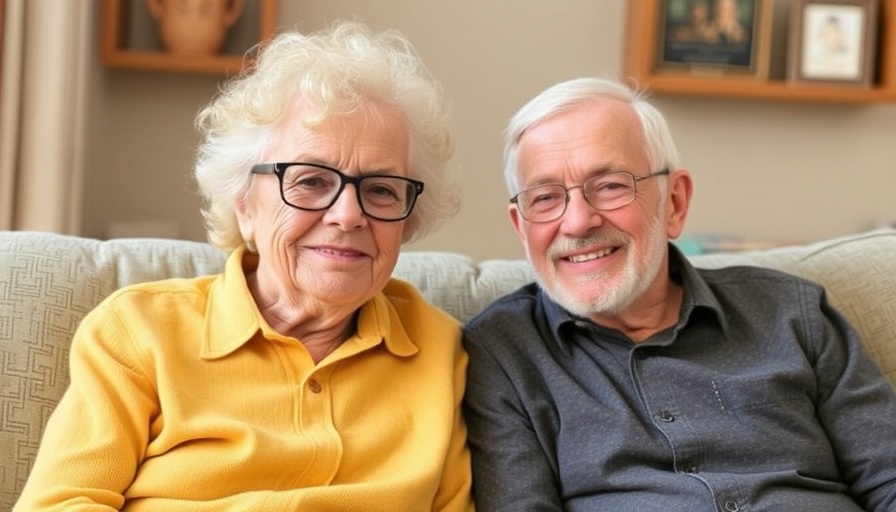
why we need more psychiatrists now
Every year, a daunting number of fresh medical graduates step into residency programs across the U.S., dedicating their lives to healing others. This year represents an exciting shift as a new psychiatry residency program has launched in Los Angeles, a move that couldn't come at a more crucial time. Mental health has never been more of a priority. With rising awareness of mental health issues, not only in personal interactions but in broader societal implications, we face a considerable shortage of qualified psychiatrists. In fact, trustworthy estimates predict a shortfall of up to 31,000 psychiatrists in the country by 2030.
We live in a world where anxiety, depression, and various mental health conditions are reaching alarming rates. The need for more professionals specializing in mental health is urgent. By starting a new residency program at Brain Health USA, we take a giant leap toward alleviating this critical gap.
the journey toward psychiatric residency
The beauty of beginning a residency lies in how it transforms theoretical knowledge into hands-on experience. Student doctors prepare tirelessly, diving deep into years of study, navigating medical schools, and tackling the stress of board exams. For those aiming to specialize in psychiatry, the stakes are amplified. The National Resident Matching Program highlights this competitive domain, where the 2024 cohort saw over 50,000 applicants scramble for just about 41,000 residency spots.
Yet, it's not just a race. It's a deeply personal journey. For international medical graduates (IMGs), the challenges multiply; they often face a daunting path toward obtaining their licenses while also contending for limited residency slots specifically available for non-U.S. graduates. Despite these hurdles, IMGs represent a substantial part of the American healthcare system, comprising over 25% of the physician workforce. The new program at Brain Health USA emphasizes supporting these aspiring psychiatrists while seamlessly integrating into a much-needed field.
how brain health usa is making waves
Brain Health USA's new Psychiatry Residency Program, developed with Residents Medical Consultancy, isn’t just filling positions; it’s redesigning the way we understand mental healthcare training. The program is distinguished by several factors: It's accredited, meaning it meets rigorous standards necessary for aspiring psychiatry residents. This is about more than just boosting numbers; it’s about quality, compliance, and reinforcing ethical values in medical education.
By intertwining application enhancement strategies and mentorship, the program gears participants to thrive not only in interviews but also in clinical applications. This creates a robust environment where future psychiatrists can emerge equipped to tackle the real-life challenges they will undoubtedly face on the job.
the broader implications of this residency program
This residency launch brings with it the potential for expanded discussion on mental health policy and practice. More trained psychiatrists in the workforce can lead to a healthier society, lifting the mental health narrative into the spotlight. Increasing accessibility to behavioral healthcare is crucial, as the country grapples with rising mental health issues. As Dr. Michael Everest puts it, “The country has never needed more mental health professionals than it does right now.”
This is not merely an academic enterprise but a lifeline for countless individuals seeking timely and transformative mental health support. The evidence speaks loudly – when we invest in educating future doctors, we shape a better future for our communities.
community impact and future directions
Local communities will see the ripple effects of such programs. By increasing the number of trained psychiatrists, we not only address workforce shortages but foster an environment where mental health becomes an integral part of healthcare discussions across all spheres, including schools and community centers. It reshapes the narrative, turning mental health awareness from a whispered conversation into a loud, emphatic movement.
As we consider future moves, it’s important to view this residency launch as a pivotal moment. Can we start expanding these programs further? Could other regions replicate this model to address their community's specific mental health needs? This is only the beginning.
what this means for future medical professionals
For aspiring psychiatrists, this residency signifies a groundbreaking opportunity. Imagine walking through the doors of Brain Health USA, stepping into an environment rich with mentors, resources, and a vibrant community of fellow residents. Here, they’ll not only learn about mental health but also actively participate in evolving it. Patients will benefit more than anything, enhancing the level of care provided in a field plagued by shortages.
This isn’t just about filling vacancies; it's about nurturing professionals who are ready to spearhead change, challenge existing preconceptions, and create welcoming spaces for healing minds.
 Add Row
Add Row  Add
Add 




Write A Comment